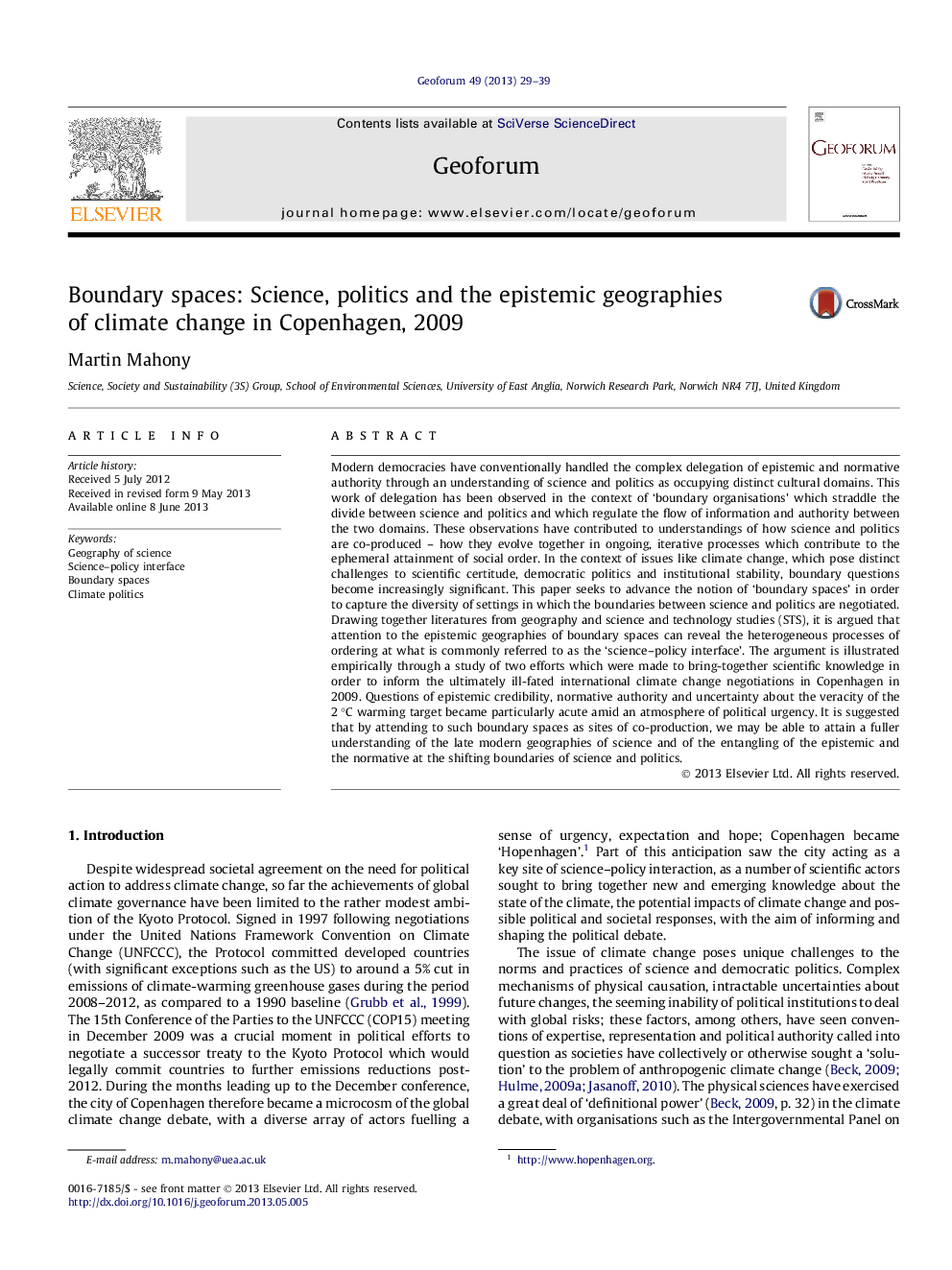| Article ID | Journal | Published Year | Pages | File Type |
|---|---|---|---|---|
| 5074205 | Geoforum | 2013 | 11 Pages |
â¢The modernist idea of science and politics being wholly separate is eroding.â¢Offers the notion of 'boundary spaces' to describe the complexities of science-policy interface.â¢Studies the geographies of two boundary spaces enacted before 2009 global climate talks.â¢Different logics of relating knowledge to action evident in spaces and materiality of the projects.â¢Negotiation of the 2 °C temperature rise target highlights the hybridity of science-policy links.
Modern democracies have conventionally handled the complex delegation of epistemic and normative authority through an understanding of science and politics as occupying distinct cultural domains. This work of delegation has been observed in the context of 'boundary organisations' which straddle the divide between science and politics and which regulate the flow of information and authority between the two domains. These observations have contributed to understandings of how science and politics are co-produced - how they evolve together in ongoing, iterative processes which contribute to the ephemeral attainment of social order. In the context of issues like climate change, which pose distinct challenges to scientific certitude, democratic politics and institutional stability, boundary questions become increasingly significant. This paper seeks to advance the notion of 'boundary spaces' in order to capture the diversity of settings in which the boundaries between science and politics are negotiated. Drawing together literatures from geography and science and technology studies (STS), it is argued that attention to the epistemic geographies of boundary spaces can reveal the heterogeneous processes of ordering at what is commonly referred to as the 'science-policy interface'. The argument is illustrated empirically through a study of two efforts which were made to bring-together scientific knowledge in order to inform the ultimately ill-fated international climate change negotiations in Copenhagen in 2009. Questions of epistemic credibility, normative authority and uncertainty about the veracity of the 2 °C warming target became particularly acute amid an atmosphere of political urgency. It is suggested that by attending to such boundary spaces as sites of co-production, we may be able to attain a fuller understanding of the late modern geographies of science and of the entangling of the epistemic and the normative at the shifting boundaries of science and politics.
